MS-ETS1-1
Define the criteria and constraints of a design problem with sufficient precision to ensure a successful solution, taking into account relevant scientific principles and potential impacts on people and the natural environment that may limit possible solutions.
-
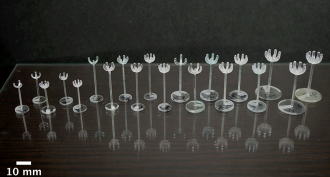 Physics
PhysicsAn ancient plant inspires a new lab tool
Researchers have designed a lab tool that moves liquids from one place to another by mimicking a plant called a liverwort.
By Sid Perkins -
 Chemistry
ChemistryHard-to-burn ‘smart’ wallpaper even triggers alarms
Scientists have made wallpaper that won’t easily burn. And embedded nanowires can be linked to a sensor to sound an alarm when the paper gets too hot.
-
 Chemistry
ChemistryBanana plant extract can slow how fast ice cream melts
Food scientists now show that adding these tiny plant particles to ice cream may delay the rate at which this treat melts into a soupy mess.
-
 Materials Science
Materials ScienceLight could make some hospital surfaces deadly to germs
A new surfacing material can disinfect itself. Room lighting turns on this germ-killing property, which could make the material attractive to hospitals.
-
 Chemistry
ChemistryCool Jobs: Diving for new medicines
Scientists mix research with underwater adventure as they search the oceans for new chemicals to treat infections, cancer and more.
-
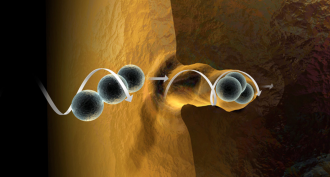 Tech
TechTherapeutic robots may soon swim within the body
Scientists are designing tiny robots that may one day do work inside the human body.
-
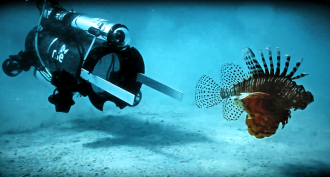 Tech
TechUnderwater robot vacuums up lionfish
Lionfish damage coral reefs in the Atlantic Ocean. A new underwater robot hunts, stuns and captures the bullies with help from a human operator.
-
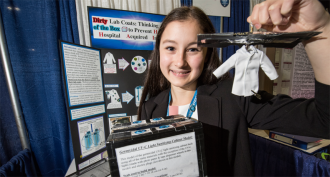 Health & Medicine
Health & MedicineA light-filled box could blast bacteria from lab coats
Doctors can pick up bacteria on their lab coats. A teen has designed a special light-filled box to keep those coats from infecting others with those germs.
-
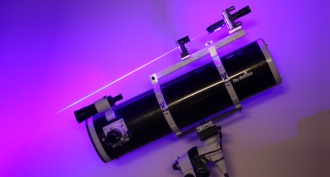 Tech
TechTweaked germs glow to pinpoint buried landmines
Finding landmines could become much safer with a new technology. It uses genetically modified bacteria that glow under laser light.
By Dinsa Sachan -
 Tech
TechTeaching robots right from wrong
Robots of the future will face tricky dilemmas. Researchers are working on tools to help robots make the right choices and keep people safe.
-
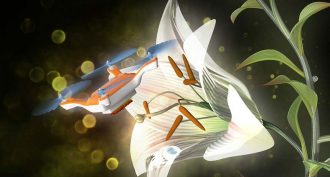 Tech
TechFleets of flying robots could pollinate crops
Tiny flying drones use patches of sticky hair to capture pollen. One day they might join bees in pollinating crops.
-
 Computing
ComputingLEDs offer new way to kill germs in water
Growing ultraviolet-light-emitting diodes on thin, flexible sheets of metal holds promise for water disinfection and other applications.
By Sid Perkins